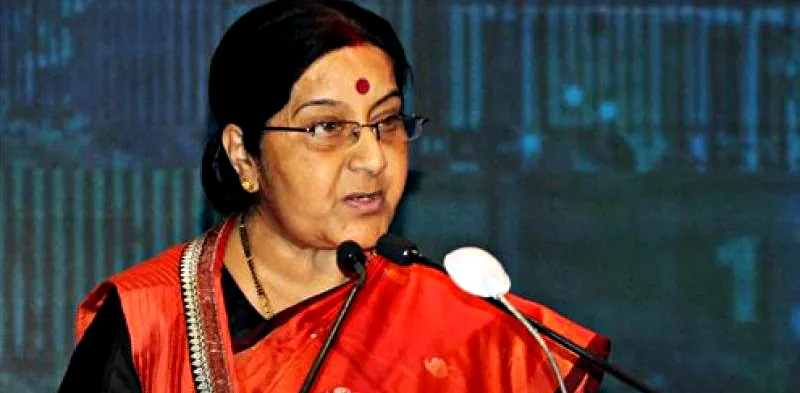Encourage men to pick up culinary skills, women to learn martial arts: Sushma Swaraj
At a Group of Ministers (GoM) meeting held to review the national policy for women, External Affairs Minister Sushma Swaraj ideated a grand (gender-)role reversal between men and women, in order to eradicate gender bias. She suggested that while there should be emphasis laid on men picking up culinary skills through various means, like home science courses in college, women should be encouraged to pick up sports and physical activities, like martial arts.

By way of reversing these societally constructed gender roles, biases will be busted and stereotypes deconstructed, and the larger point of equality and freedom of choice would be driven home. A government source was quoted by The Hindustan Times saying, "She told the meeting that encouraging men to study home science will help break the traditional mindset about women. In this way, men can also contribute to making women’s lives better. Swaraj said that though men and women are working, the workload on women is far more.”As head of the GoM, she is actively involved in shaping the national policy's first revision in 16 years, which will be spearheaded by the Women and Child Development Ministry led by WCD Minister Maneka Gandhi. It shall encompass contemporary issues surrounding health, including food security and nutrition, education, economy, governance and decision making, violence against women, and the environment and climate change,The prominent names in the eleven-strong GoM include Commerce Minister Nirmala Sitharam, Urban Development Minister Venkaiah Naidu, IT Minister Ravi Shankar Prasad, and WCD Minister Maneka Gandhi.Several other suggestions were also made during the proceedings of the meeting. Venkaiah Naidu is a supporter of women's reservation in educational institutions in order to provide them with "better opportunities”, and also believes that women should be granted more business loans. Nirmala Sitharaman opined that women who are undertrials should be kept in special homes. Another minister was of the opinion that women undertrials, if accused of non-heinous crimes but found guilty, should only serve a third of their time. He also recommended that women starting businesses should be given more loans, a source said.
An excerpt from the draft of the policy released last year states, "Nearly a decade and half has passed since the National Policy for the Empowerment of Women (NPEW), 2001, was formulated, which laid down a comprehensive progressive policy for the advancement, development, and empowerment of women with appropriate policy prescriptions and strategies. Since then, significant strides in global technology and information systems have placed the Indian economy on a trajectory of higher growth, impacting the general populace and women in particular, in unique and different ways. These changes have brought forth fresh opportunities and possibilities for women’s empowerment, while at the same time presenting new and emerging challenges, which, along with persisting socio-economic problems, continue to hinder gender equality and holistic empowerment of women. Further, the deep-rooted patriarchal social constructs position women in disempowered social and economic hierarchies that impede the realisation of their rights.The ministry is also crowdsourcing innovative ideas from citizens to make the policy more contemporary."
This draft has also addressed issues surrounding single women and widows. Moreover, they are looking for groundbreaking ideas coming from citizens as well, to incorporate into the new policy.







